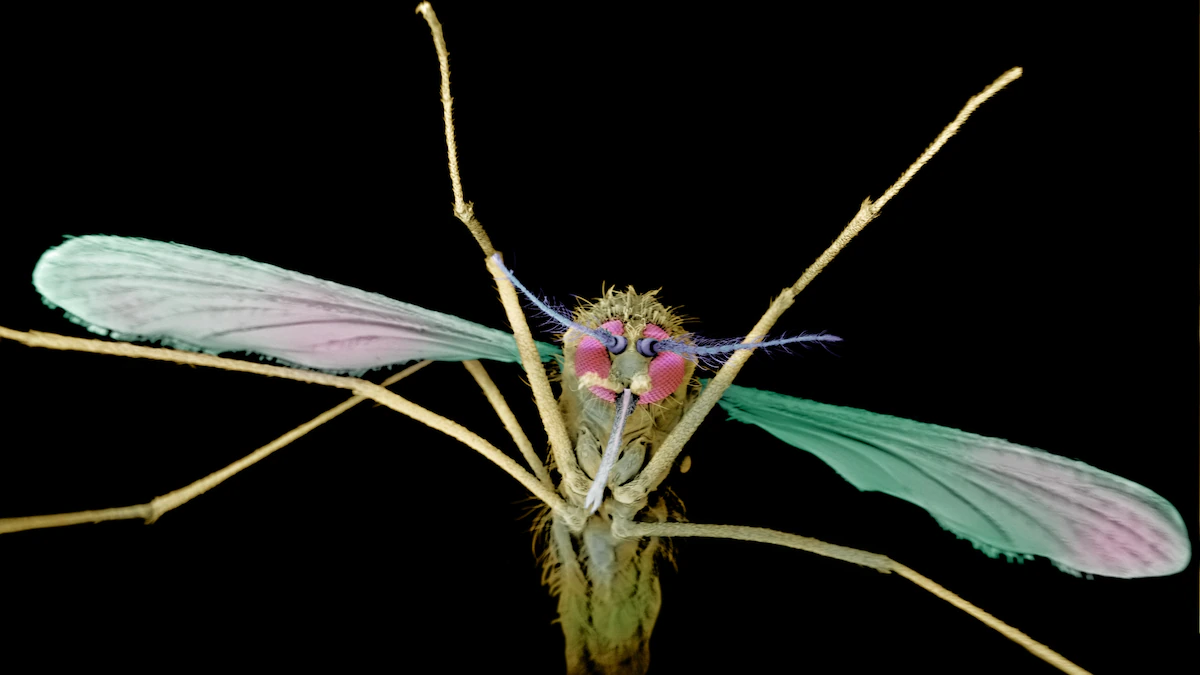
For a mosquito, a music festival is an all-you-can eat buffet. But a new study hints that some revelers may be at greater risk of bites than others.
The new paper posted to the pre-print website bioRxiv last month finds that certain behaviors—such as drinking beer and avoiding sunscreen—may make some people mosquito magnets. While the paper hasn’t yet been peer-reviewed, it’s the largest study yet to examine the impact of factors like hygiene and intoxication on mosquito meal selection.
When mosquitos are on the hunt, their first step is sniffing out carbon dioxide that humans exhale. Body heat and odor can also draw them in. Studies have suggested that people who are more likely to get bit may have a less diverse community of microbes living on their skin, or an inherited predisposition to these bites. Other analyses of blood type have generated mixed results. But the exact recipe that lures the bloodsuckers to unlucky humans remains a bit of a mystery.
Understanding what attracts mosquitoes isn’t only important for avoiding itchy bites. Mosquitoes are the deadliest animals in the world, according to the U.S. Centers for Disease Control and Prevention. Spreading diseases such as malaria, dengue, and Zika virus, mosquitoes pose a significant threat to human health in many parts of the world.
“When you say that you’re studying malaria and specifically mosquitoes, people sometimes do ask like, ‘Oh, yeah, I’m always bitten. And why is that?’ So it’s, it’s a topic that is in many people’s minds, especially during the summer,” says Sara Lynn Blanken, a biologist at Radboud University Medical Center in the Netherlands and a co-author on the new study.
(Here’s what to do if you’re a mosquito magnet.)
What makes a mosquito magnet?
To learn more about what attracts mosquitoes, researchers turned to one of the world’s least hygienic and most chaotic environments: a music festival. The Lowlands music festival in a farming area called Biddinghuizen in the Netherlands has a program where researchers can apply to conduct an experiment during the three-day event.
THIS WEEK ONLY
So in August 2023, Blanken and her colleagues set up a makeshift lab in shipping containers and recruited festivalgoers to participate. Each festivalgoer filled out a survey that covered sleeping, showering, diet, blood type, and substance use habits during the event. Researchers also measured blood alcohol levels with a breathalyzer and swabbed the skin of each participant. Finally, participants held their arms up to the side of a cage that contained a female Anopheles stephensi mosquito as cameras captured the insect’s movement. A grid of small holes in each plastic cage allowed the insects to sniff but not bite the humans.
“A lot of people were there with friends or maybe a partner, and they had a preconceived notion of ‘she’s always getting bitten,’ or something like that. So people are really excited to be able to finally put that to the test,” says Felix Hol, a biophysicist also at Radboud University Medical Center and co-author on the study.
Researchers then fed the footage to an algorithm that analyzed each skeeter’s interest, quantifying how many times each bloodsucker landed on a person. Crowds gathered outside the storage containers and cheered as each participant’s attractiveness score popped up on a screen outside. “I was really, really positively surprised by the sheer enthusiasm,” says Hol.
Out of 465 participants, the team found that mosquitoes were more likely to land on people who reported drinking beer or wine in the last 12 hours, consuming cannabis in the last 48 hours, avoiding sunscreen, and sharing their beds with others. People who hadn’t showered recently were less likely to see sunscreen’s benefits, and perfume had no effect.
Bacteria from the genus Streptococcus has been linked to mosquito magnetism before and was also slightly more common on the skin of people with higher attractiveness scores.
Does beer really attract mosquitoes?
Though the study is the largest of its kind and looks at a wide range of behaviors, Hol and Blanken point out that the festival wasn’t a controlled environment, and mosquitoes could only smell, not bite the forearm. The mostly young attendees may have been accustomed to consuming alcohol and dabbling in substances at higher levels than the average person. They’re also a bit quirky. One participant even self-identified as a “demigod” and had to be excluded due to low mosquito activity.
Still, the new research backs up previous studies that have hinted that odor, microbes, and alcohol-drinking might all entice mosquitoes. With sunscreen, the oil or odor may deter the bloodsuckers, but with beer, the impact is less clear-cut. Beer-drinkers may have higher body temperatures or exhale more carbon dioxide, though a previous study suggested that might not be not the case.
Alternatively, beer could be linked to particular behaviors associated with attracting mosquitoes. “Perhaps more alcohol means more dancing, means a smellier body, or something like that,” Hol says.
The trends the researchers didn’t see are also just as interesting, notes Wendy O’Meara, a global health researcher at Duke University, who wasn’t involved in the study. Neither diet nor blood type, two popular explanations for bite frequency, tracked with attraction. But it’s hard to link a specific factor to bite preference in a specific individual and extrapolate which results might matter for people living in areas where mosquitoes transmit diseases.
(Are we entering a new era of mosquito control?)
The mosquito species used in the study, An. stephensi, can spread malaria parasites in urban areas of in southeast Asia, the Arabian Peninsula, and parts of Africa. But there is likely species-dependent variation in what attracts mosquitoes, depending in part on whether they specialize in humans, notes Hol.
At this point, avoiding beer or bedfellows isn’t a surefire way to avoid getting bit. Long-sleeves or mosquito repellant remain the surest bet for protection. “If you wish to not be bitten by mosquitoes, I think the best thing to do is to just protect yourself and be unavailable to them,” says Blanken.
One thing the study does confirm: Mosquitoes are a buzzkill.



